We're finally seeing the end of the GPU shortage
Will affordable PC gaming make a return?
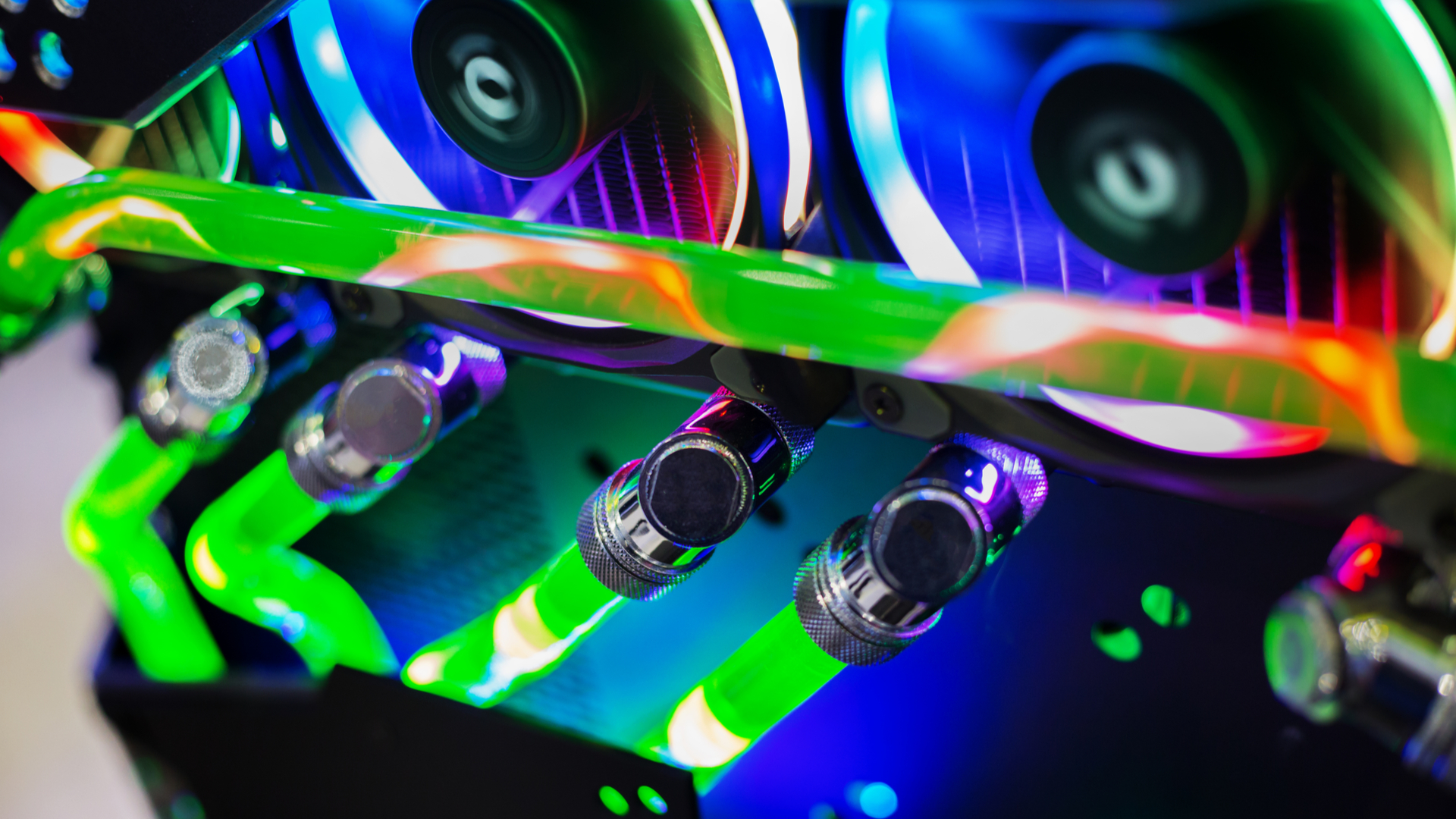
The thought of finding an affordable graphics card in today's ever-fluctuating market feels almost impossible, but it would seem that prices for highly-coveted GPUs are finally starting to recover in some areas of the world, to the point where some new cards have been spotted for under their original MSRP.
Mindfactory, a trusted tech retailer based in Germany, posted a page full of deals this past weekend that included a handful of AMD Radeon 6500 XT cards from third-party manufacturers.
Both the ASRock Radeon RX 6500XT Challenger ITX and the Gigabyte Radeon RX 6500 XT Eagle were available at €199 (around $225 / £165 / AU$310) when originally published, but Tom's Hardware notes in its own coverage that the Gigabyte model has since increased to €229 (around $255 / £190 / AU$355).
For context, the MSRP for the reference AMD Radeon 6500 XT in Germany is €209 (around $235 / £175 / AU$325), though it's not a GPU we would recommend as an 'upgrade' unless you have some seriously outdated kit in your current PC. The 6500 XT struggles to compete with much older graphics cards, so if you're still rocking something like an Nvidia GeForce GTX 1660 or even an AMD Radeon RX 580 then you'd actually be better sticking to what you have for now.
Still, this makes for a great first GPU, especially if you're planning to run low-demand games and applications. Better yet, this also indicates a few other important things that are happening within the market, such as improvements to inventory and a general decline in pricing across most graphics cards (though we were unable to find any other accounts of them dipping below their original MSRP).
Will this be a GPU you'll be chasing down to play 4K games or run demanding 3D applications? Probably not, but it bodes well for anyone who has been keeping their eyes out for more expensive hardware such as the Nvidia GeForce RTX 3080 or RTX 3060. With any luck, prices across most current-gen AMD and Nvidia GPUs will have dropped to an affordable level before we see RDNA 3 and the RTX 4000 series make an appearance.
Analysis: Will we finally see cheap graphics cards again?
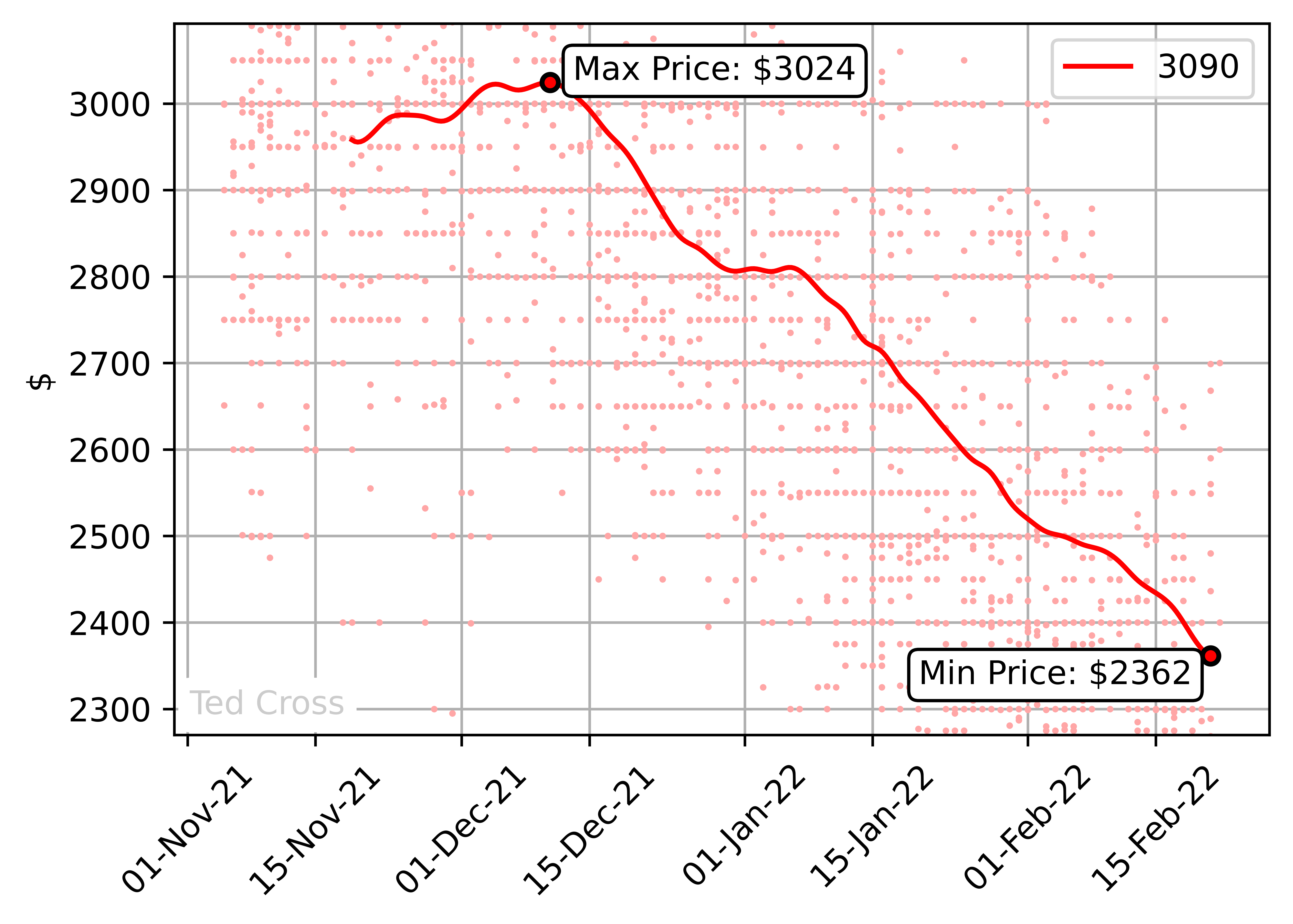
Every card tracked shows a downward trend from November 2021 to late February 2022
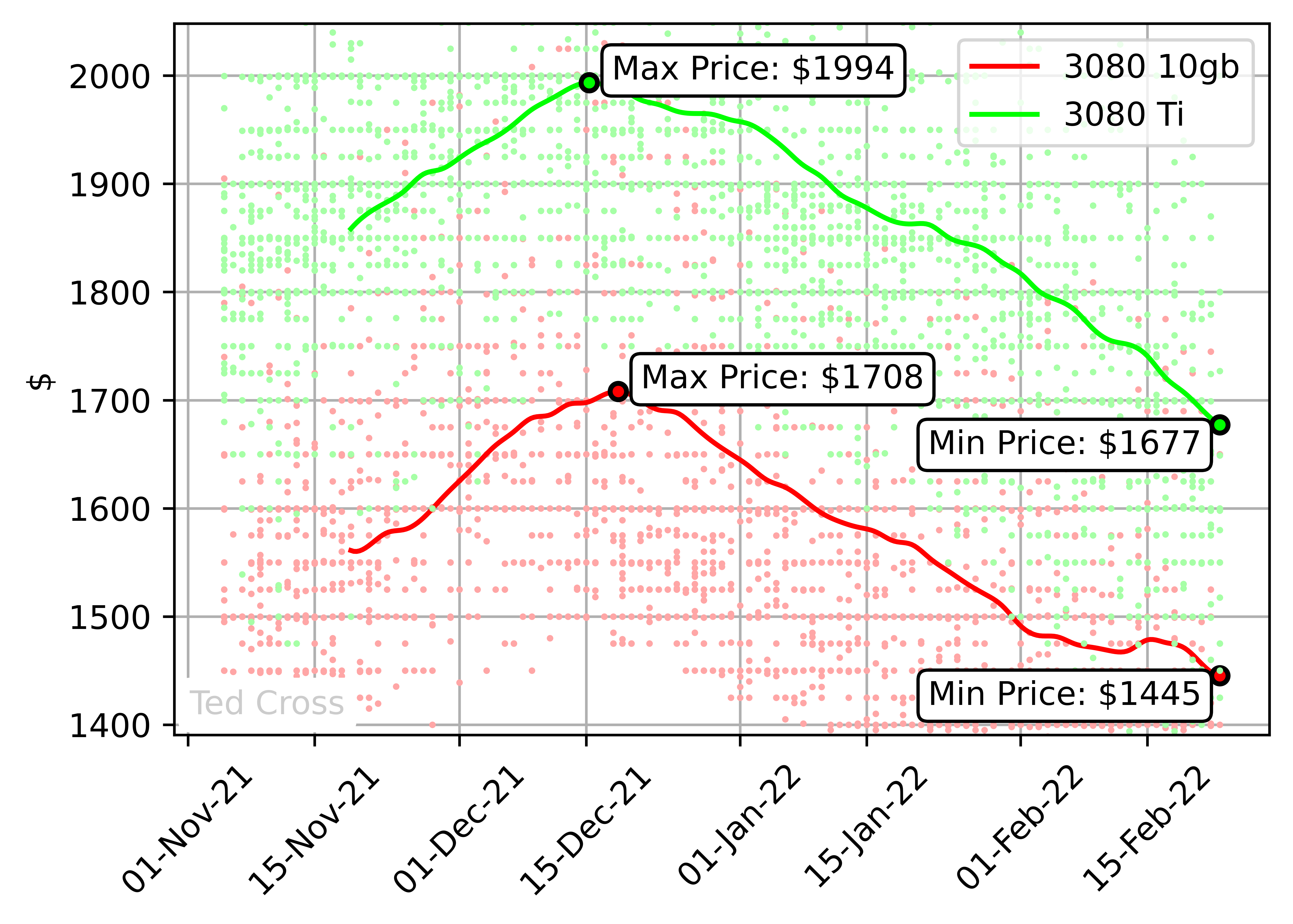
Every card tracked shows a downward trend from November 2021 to late February 2022
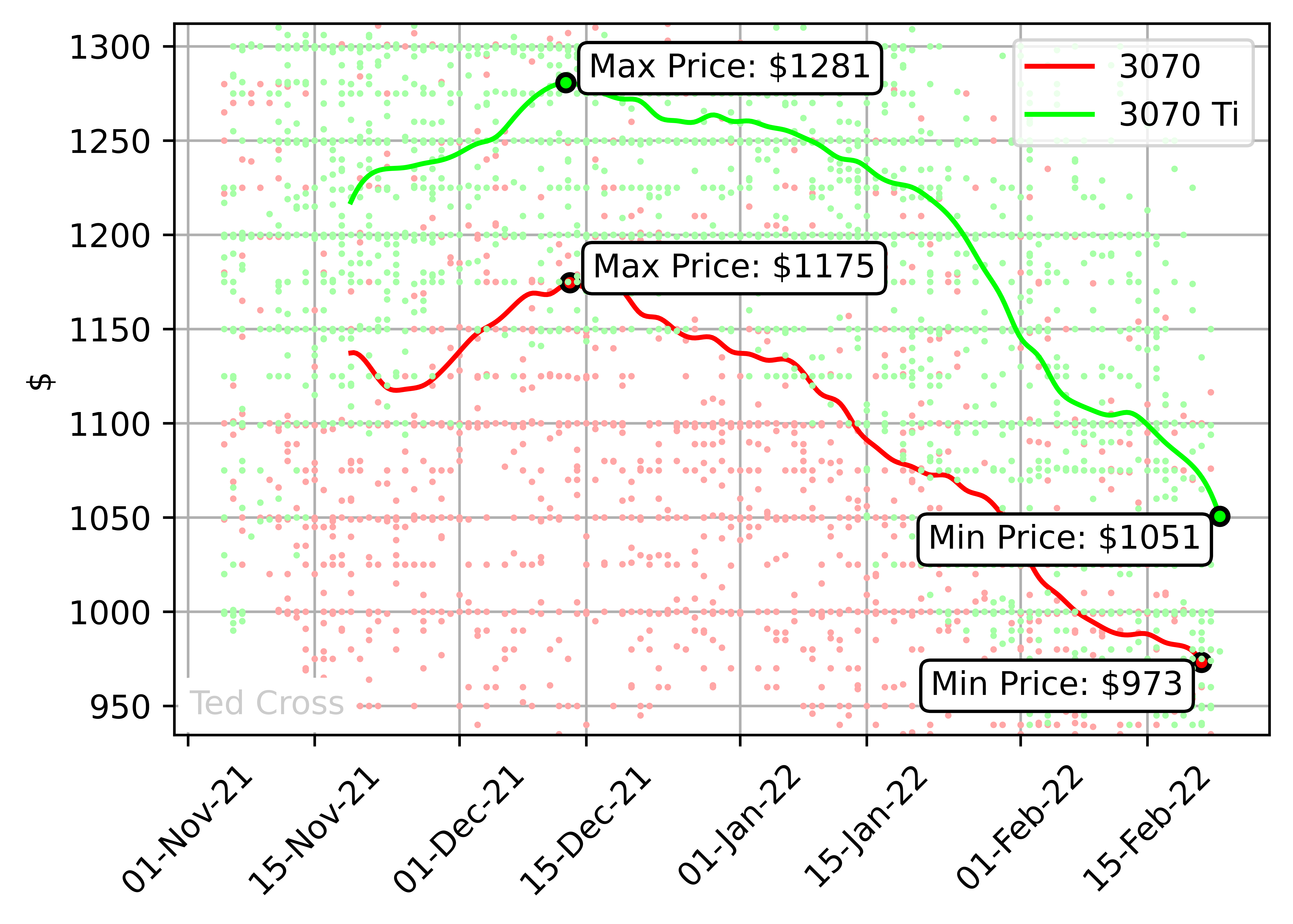
Every card tracked shows a downward trend from November 2021 to late February 2022
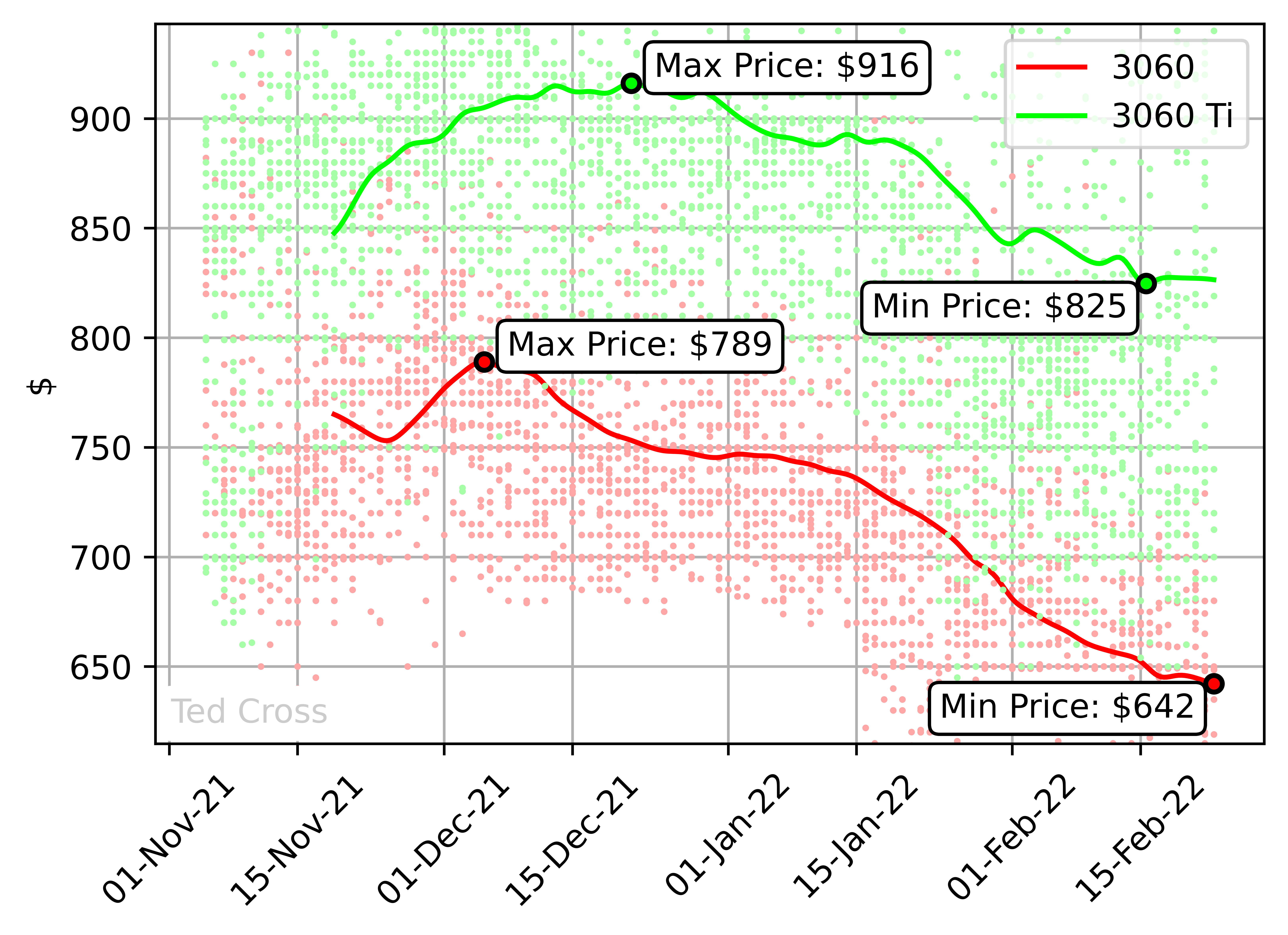
Every card tracked shows a downward trend from November 2021 to late February 2022
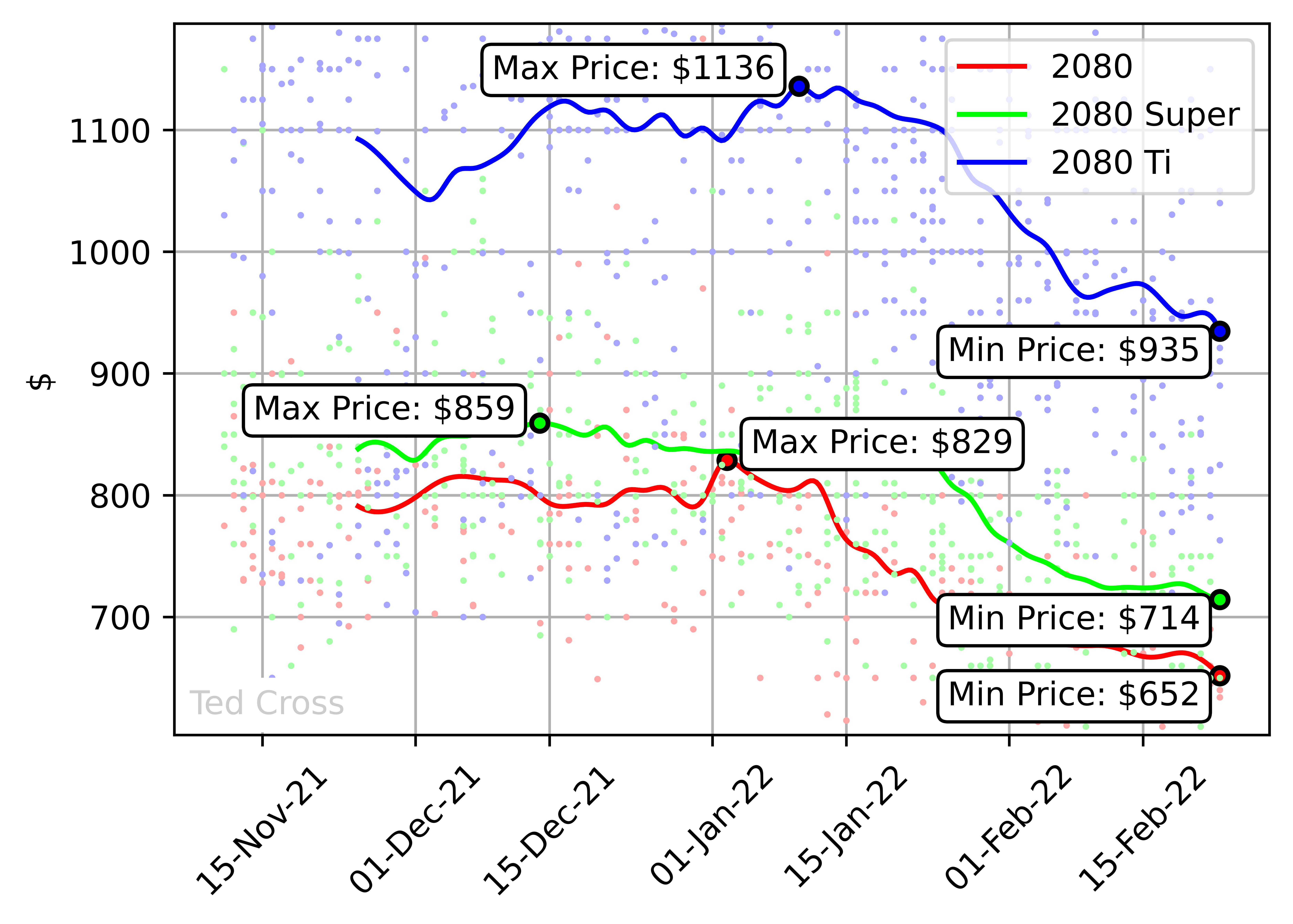
Every card tracked shows a downward trend from November 2021 to late February 2022
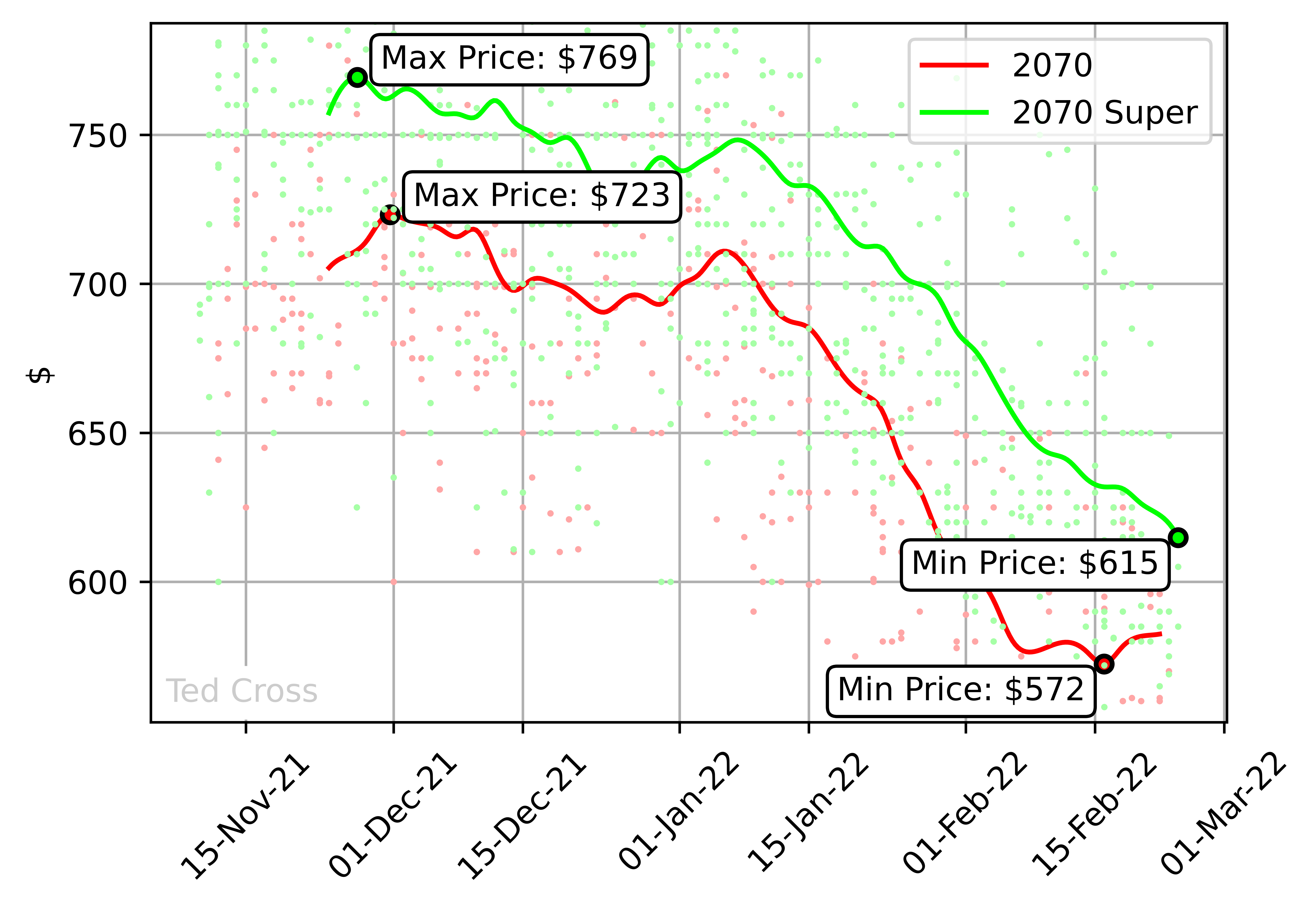
Every card tracked shows a downward trend from November 2021 to late February 2022
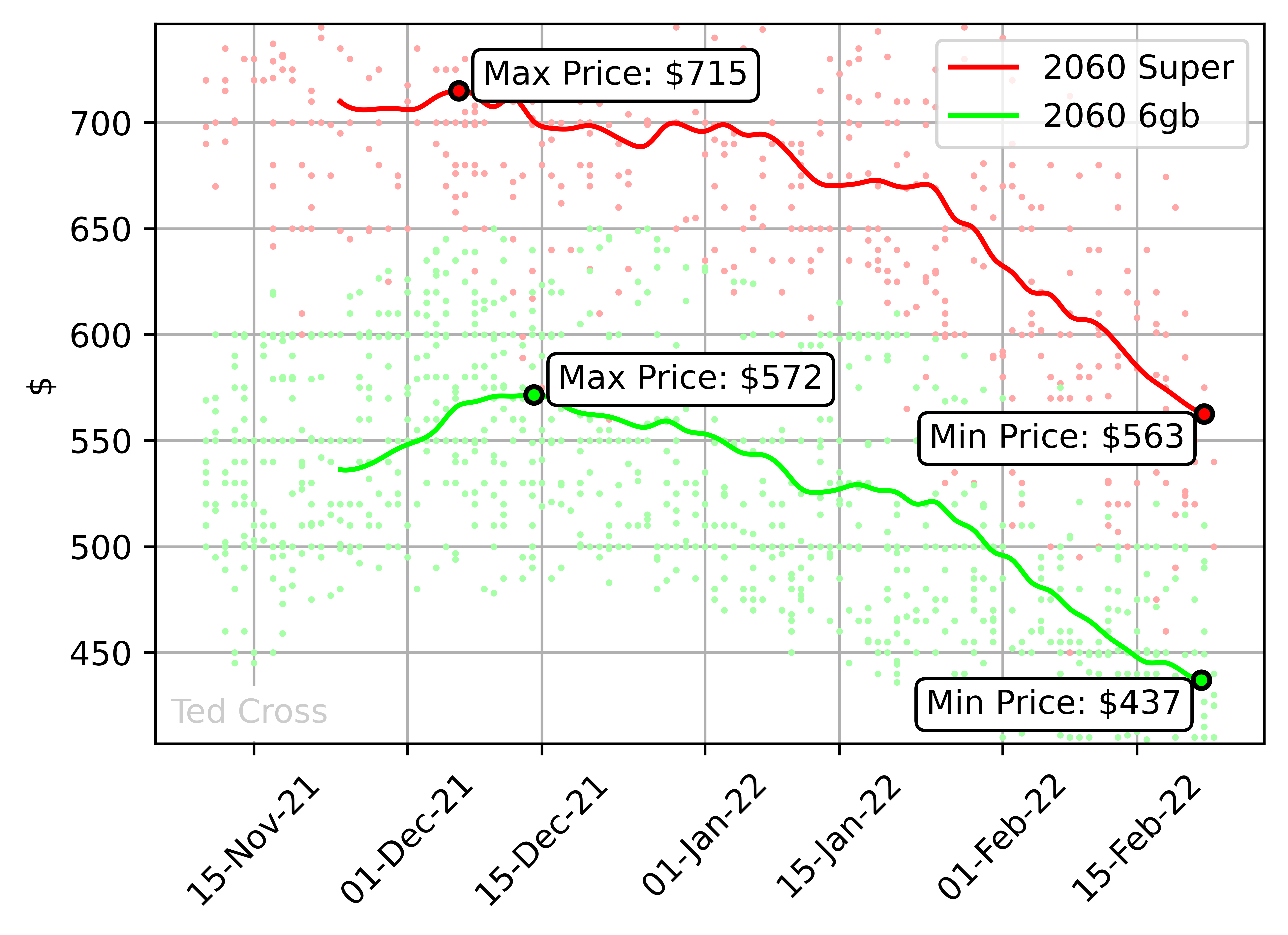
Every card tracked shows a downward trend from November 2021 to late February 2022
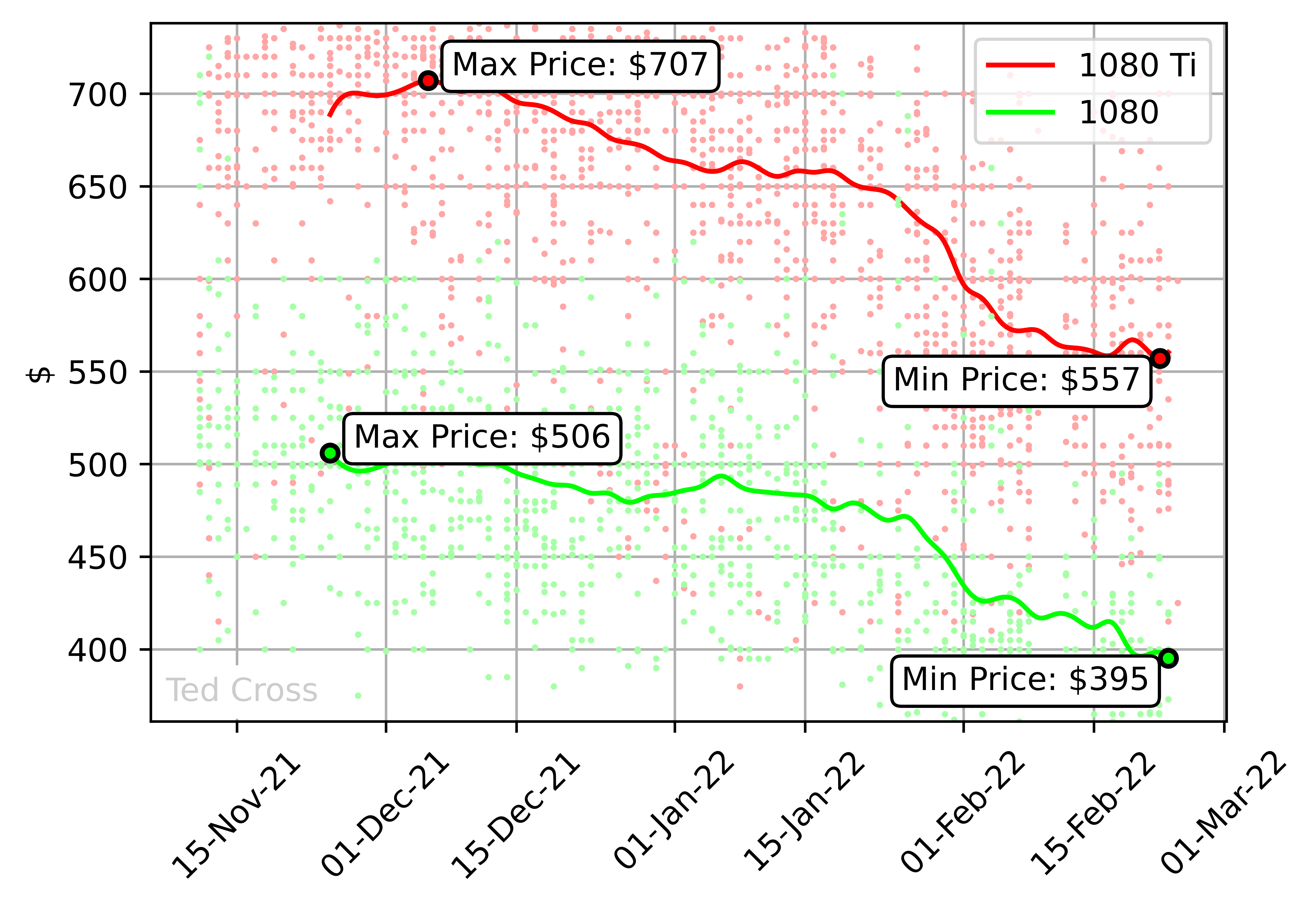
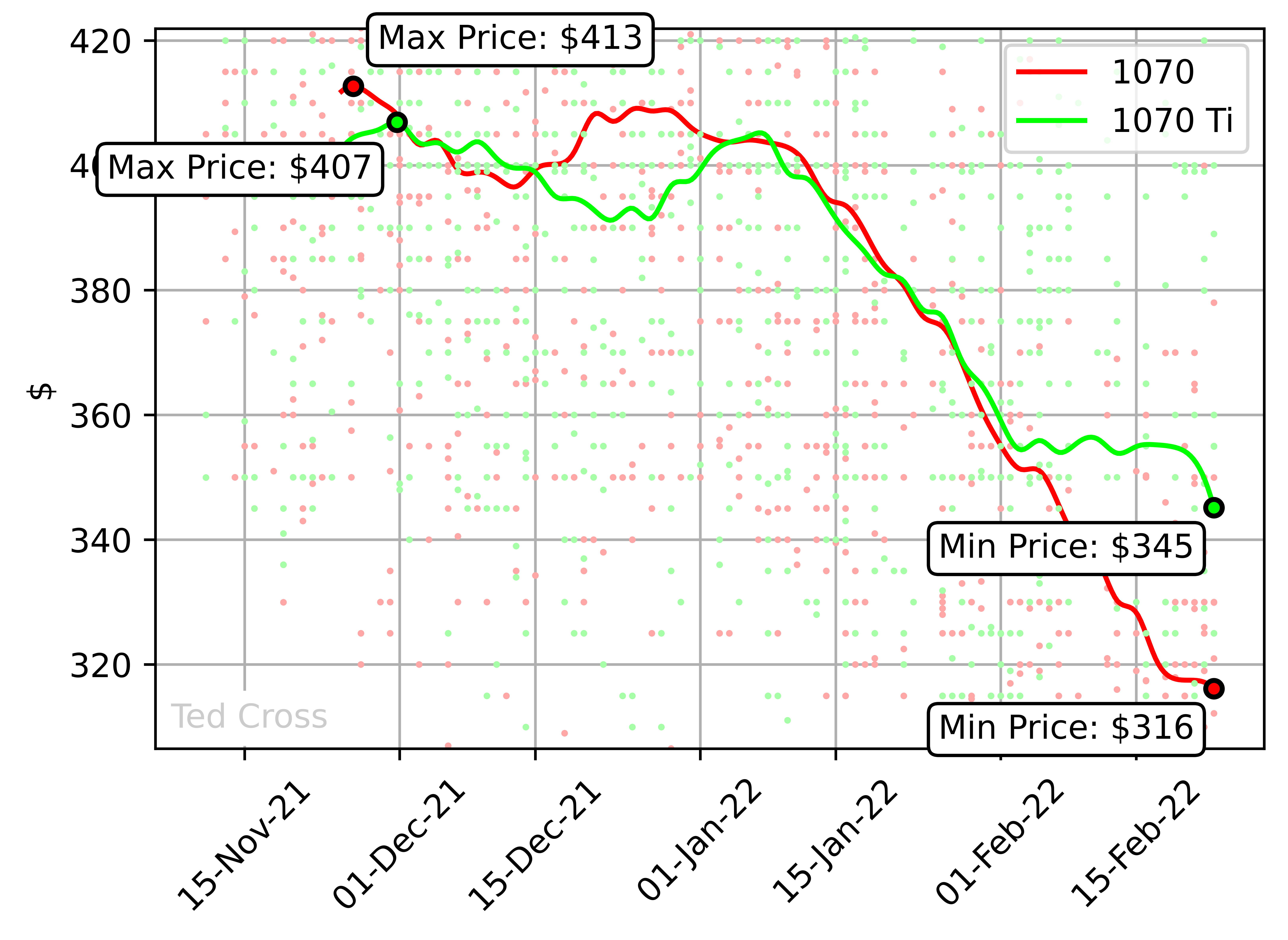
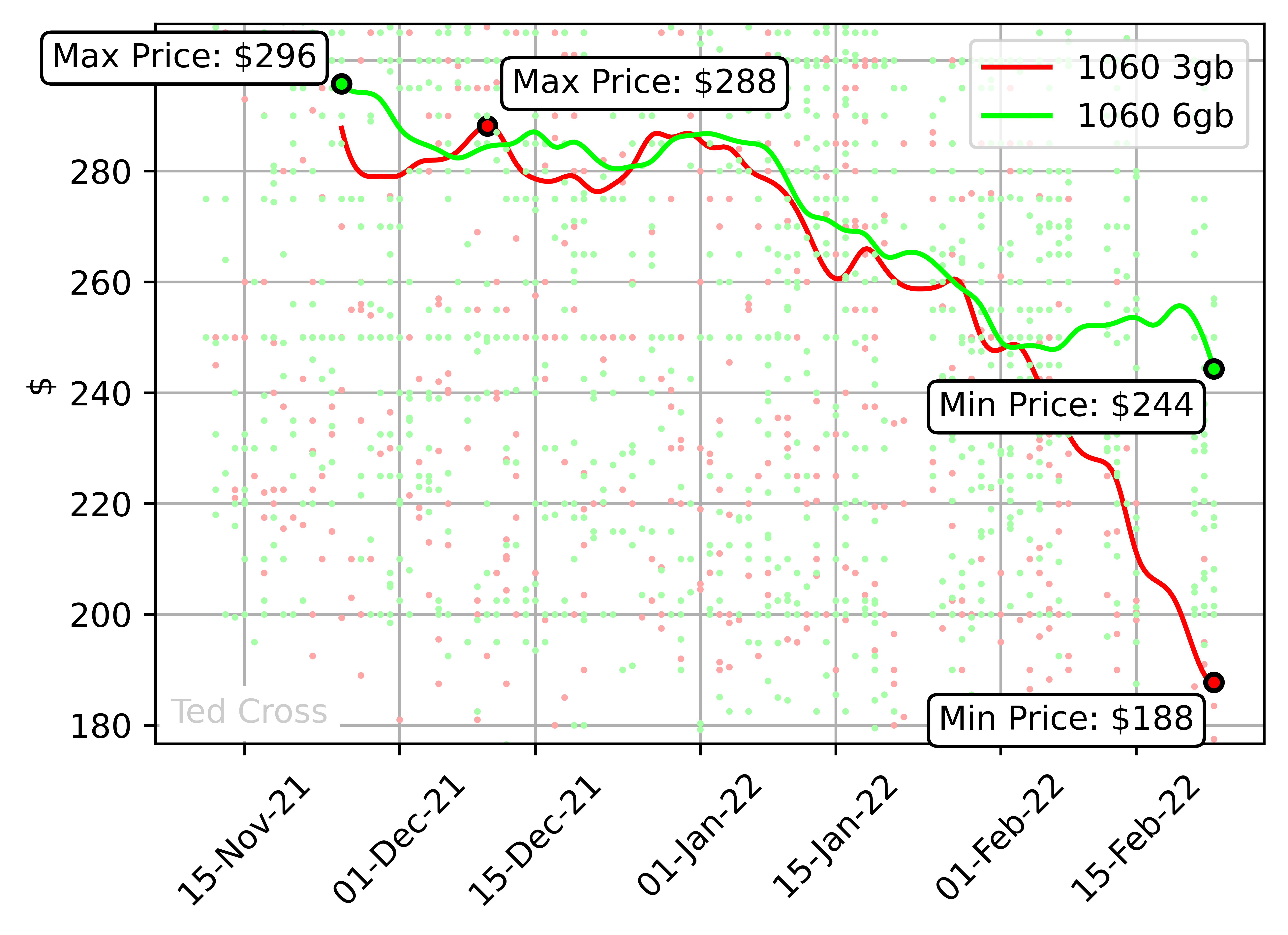
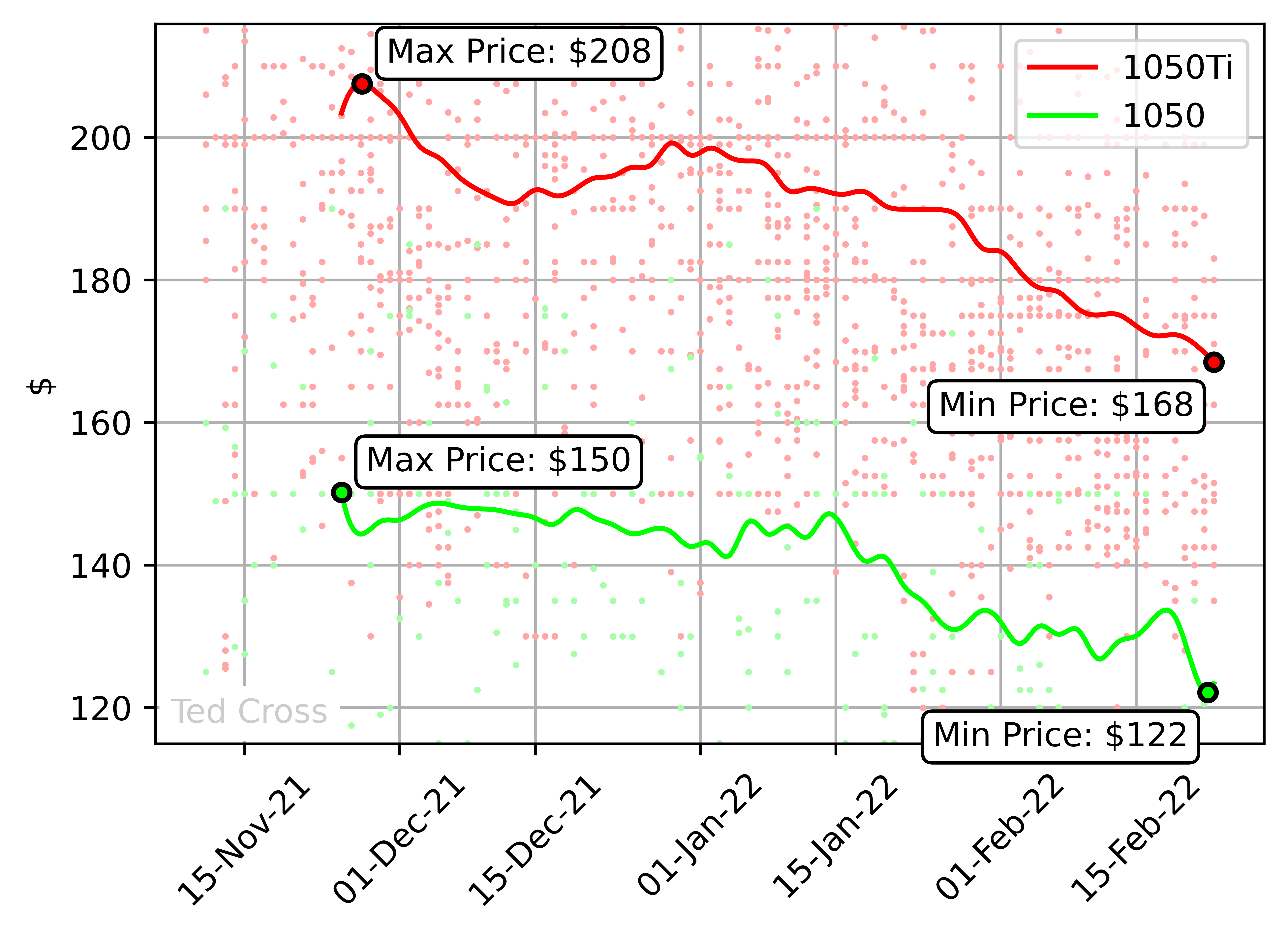
A TechRadar reader sent in several comparison graphs (as seen above) that shows how consistently Nvidia graphics card prices have been falling on eBay over the past few months.
Sign up for breaking news, reviews, opinion, top tech deals, and more.
Looking at the data, every card from the mighty RTX 3090 to the humble GTX 1050 has dropped from the lofty prices we saw following the start of the chip shortage, and while prices for new cards are still often listed above MSRP across third-party retailers, they are more affordable than they were, and stock seems to have improved considerably.
The card that saw the least improvement was the RTX 3060 Ti at 10%, but this is likely because it's more highly sought after thanks to its price vs performance output and its cryptomining abilities.
Many major manufacturers, including AMD, Intel and Nvidia all predict that the GPU market should see some huge improvement by at least 2023, and the data does appear to back this up. There's a good mix of reasons for this, one being that Ethereum (a popular cryptocurrency) will switch from a proof of work to a proof of stake model which is less desirable to mine on a GPU, as well as new semi-conductor foundries being developed to ease the ongoing chip shortage.
Truly 'cheap' graphics cards are a long way off, and may even be a thing of the past entirely depending on what you believe to be a budget GPU, but at least the situation is improving. Who knows, maybe you'll soon be able to get your hands on your dream card without having to sell all of your prized possessions to finance it.
- AMD RDNA 3: What you need to know about AMD’s next graphics cards
Jess is a former TechRadar Computing writer, where she covered all aspects of Mac and PC hardware, including PC gaming and peripherals. She has been interviewed as an industry expert for the BBC, and while her educational background was in prosthetics and model-making, her true love is in tech and she has built numerous desktop computers over the last 10 years for gaming and content creation. Jess is now a journalist at The Verge.
